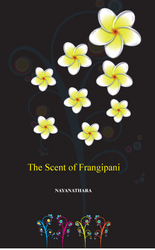 It was one of those rare occasions when the modern paintings of M V Devan and some others were being exhibited in Thiruvananthapuram and I came across my teacher Sri Ayyappa Paniker (not yet Dr Ayyappa Paniker) standing in front of one abstract rendering. To my question about the meaning of that art work, he smiled one of those inward smiles and said: ‘To each one this would mean a different thing.’ Any work of literature or art is like that. The meaning would differ from person to person.
It was one of those rare occasions when the modern paintings of M V Devan and some others were being exhibited in Thiruvananthapuram and I came across my teacher Sri Ayyappa Paniker (not yet Dr Ayyappa Paniker) standing in front of one abstract rendering. To my question about the meaning of that art work, he smiled one of those inward smiles and said: ‘To each one this would mean a different thing.’ Any work of literature or art is like that. The meaning would differ from person to person.
I was reminded of my encounter with Dr Ayyappa Paniker while going through the poems of Nayanathara. Whatever meanings these poems may convey to the reader, there is one striking thing about them: the utmost sincerity, the palpable poetic integrity of the poet. Here the poems are not cerebral exercises which would render their reading a tedious task. Most of the poems in this collection come through as outpourings of the heart, what Eliot, speaking of Donne, would call the ‘iot, speaking of the skeletonhrough as pourings out of the heart, what donne would call the anguish of the heart tedious taskanguish of the marrow, the ague of the skeleton.’
I would not know about the relevance of poetry in the present times. Even in the sixties, Sartre, sitting in his usual place in Montparnesse Café, had declared that all literature was futile, of no use when there was so much poverty around. And this was long before all those terrible famines. But reading Nayanathara I could feel that this was an assertion that poetry is still relevant especially when it is crie de coeur. The theme that runs through many of these poems is that of angst. For a poet so young the feeling of the burden of life crushing her would seem a little extraordinary till one remembers poets like Shelley, Keats, Verlaine or our own Changampuzha.
At times the poet celebrates life with a few deft strokes. The life growing within her becomes ‘the delicate light of the heavens’ that illuminate her afflicted mind. And she ‘listens to the musings of the life growing within her’—probably one of the finest expressions regarding motherhood. In one of her poems she defines serenity as a ‘warm embrace of God and Man.’ Who would not have had this feeling standing on a sea shore on a dawn full of dew? Some of the poems touch one with the true emotions expressed through quaint terms. The poet’s home ‘wipes off her tears, gathering them in the bowl of moist earth’ and she wishes that one day
‘I would quietly perish with an exuberant glow…
My last breath emanating the fragrant,
Tranquil warmth of a million years.’
The woman in her asserts her whole being to be ‘an ornate vessel glistening with the potion of immortal love.’ Again the coffee blossoms are ‘graceful virgins, ornaments for the first rays of the dawn.’
The poet sees life in its myriad hues—if it is a hanging bridge at times, at other times it becomes ‘a cluster of full blown bubbles,’ ‘some exquisitely bright and colourful, others an abstruse blend of black and grey.’
Yet again life becomes ‘an arrogant stranger, giving his casual sarcastic smile.’ Then the ‘tall grass relishes golden drops of sunshine’ and ‘sweet life flows.’ And there lies ‘an old, forgotten desire, the desire to exist.’
Many of these poems linger in your memory, as the poet says, ‘beautiful reminders of our orange days.’
Like every poet, every creative artist, she also goes through a state of mind where there is a dearth of ideas, but your dreams are born ‘in the hidden corners of a sleepless mind’ and the poet gives life to an honest expression of her thoughts.
One of the finest poems is ‘A Day’s Wait’- Radha waiting for her beloved. In a few masterful strokes the poet has been able to capture the desolate longing of the eternal beloved pining for her loved one.
Sometimes one comes across what I would call poetry of honesty and sincerity as in ‘The Hamlet of Archibald MacLeish.’ Many of the poems of Nayanathara touch your heart with the spontaneity of sincere emotions they express. This is what one would look for in poetry and this is what sustains poetry and makes it relevant even in the present times. Many of the poems deserve a reading for their sheer simplicity of expression and sincerity of emotion.




